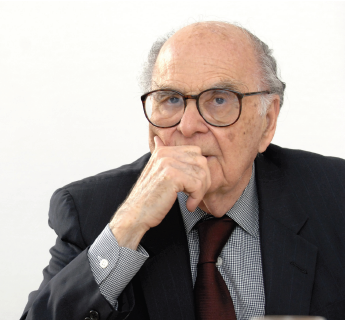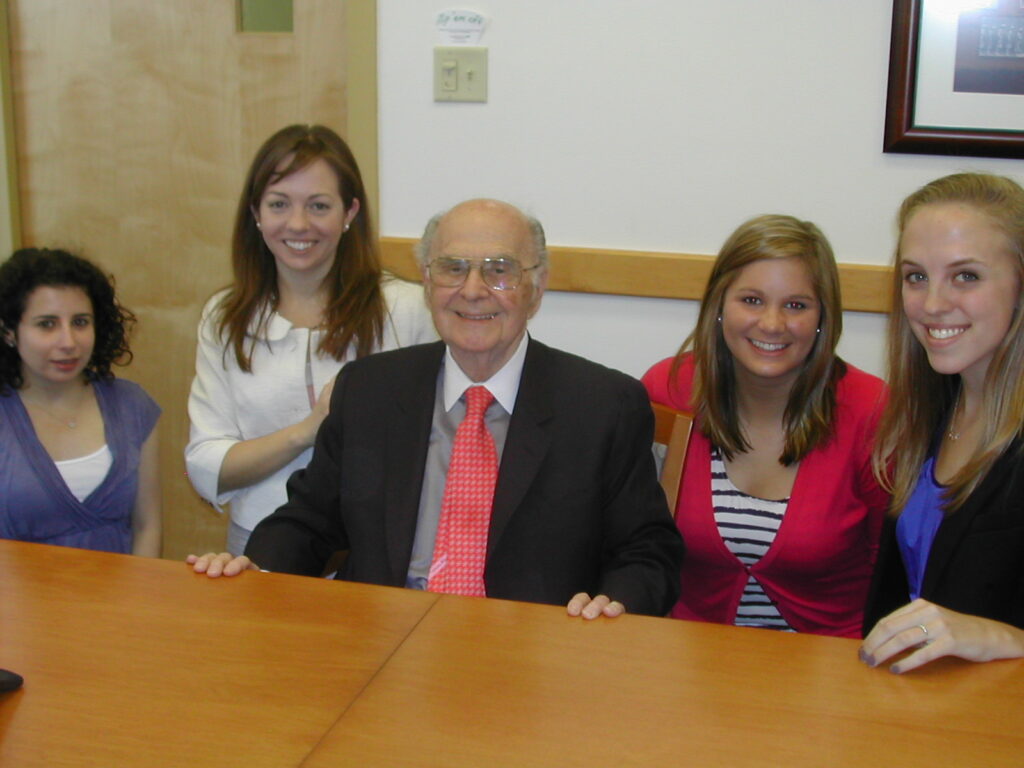To Harold Burson, Mississippi is a single, pleasurable and cherished memory that has played a significant role in his life. It is a bridge linking his young childhood to his adolescence.

A Memphis native, Burson graduated from the University of Mississippi (Ole Miss) in 1940 at a young age of 19. He worked his way through college as a stringer for The Commercial Appeal.
“My four years in Mississippi allowed [me] to learn how to deal with those much older than myself, an ability that has contributed to my professional sense of understanding an industry built on maturity and know-how,” Burson said.
In his third year of college, he became the director of the Ole Miss News Bureau under the university’s publicity department. Burson attributes this to be the most valuable aspect of his college experience, learning what he now knows to be components of a public relations program.
In 1939, Burson scored an interview with William Faulkner. The interview resulted in a story that would be considered rare for its time, and garnered national media attention from the Associated Press.
Burson’s famed news career began when he covered the Nuremberg Trials of Nazi war criminals as a news correspondent for the U.S. Army. He attributes his dedication to his work— helping clients through the power and use of excellent communication techniques—to his determination to finish his service as a soldier and live in New York for the rest of his life.
Even in his 90s, Burson is adamant about going to the office daily and is the author of a blog about the dynamic roles public relations plays in today’s society. Both he and his success has served as examples to others of dedication can change the world of communication.

He has credited many people with playing significant roles in this success.
“The first [is] my mother, who instilled into me a sense of security that has served me well throughout my life,” Burson said. “I was [also] fortunate to have a mentors in high school, as well as two students, two faculty members and even the football coach at Ole Miss.”
Burson also mentioned three mentors at the Memphis Commercial Appeal, as well as the ones he obtained after entering the business world. These mentors were other public relations professionals, several client CEOs and “a couple of top-notch journalists.”
PRWeek, an online public relations source, said Burson was using integrated marketing techniques before the term was even
invented.
“At my first meeting with Bill Marsteller, we talked about advertising and public relations,” Burson said. “Both of us felt there should be much greater coordination between the two disciplines.”
He referred to his techniques as “total communications.”
Burson is the cofounder one of our nation’s most notable public relations firm, Burson-Marstellar.
“As time went on and [Bill and I] decided to join forces. We came up with the idea to offer [this] total communication to our clients,” he said.
Total communications refers to public relations, advertising as well as market research wrapped up in a single package. This would later come to be known as Integrated Marketing and Communications.

Since coining the term, he has been described as the century’s most influential public relations figure. In addition, He has won numerous awards and honors, served on countless boards and lead the public relations industry through the changes of modernization.
In this modern society, digital media is the most significant advance in the field. The introduction of technology over the years has been the most impactful of all because it provides what Burson calls “instant two-way communication” anywhere in the world and at very low cost.
But it has some inherent problems that must be overcome data security and privacy among the most timely.
“[Digital Media] must also, over the long term, demonstrate that it consistently delivers credible information,” Burson said. “But, perhaps most of all, its use as a weapon of destruction must be neutralized.”
As communications technology becomes more complex, the role of the professional communicator will grow in importance. And even at age 93, Burson is the definition of a professional communicator.
Story by Caty Cambron, Mississippi Observer magazine
